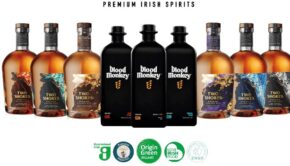Space-age new Spanish R&D project focuses on advanced precision viticulture

The Terras Gauda vineyard is the site of a new pilot project in Spain, supported by European funds and with a budget of €6 million
24 September 2014
Winemaker Terras Gauda is promoting an international R&D project in Spain based on advanced precision viticulture, with participation from companies and research groups from eight countries; Germany, Austria, Italy, Poland, Czech Republic, Turkey, Latvia and Spain.The Terras Gauda vineyard is to be the site of the Spanish pilot project, while the two other locations included in the European study are in Germany and the Czech Republic.
The goal of the project is ultimately to allow wineries’ technical teams to make more timely decisions about treatments that will improve plant health and nutrient supply, predict yields, and enable harvests to be organised by plots and varieties.
The project, called Foodie, aims to collect and reorganise already existing information from outer space, provided by the environmental monitoring programme and managed by the European Space Agency (COPERNICUS), the Global Navigation Satellite System of the European Union (GALILEO), the Global Biodiversity Information Facility (GBIF), the Infrastructure for Spatial Information in the European Community (INSPIRE) and Global Earth Observation System of Systems (GEOSS), among others. This data will be correlated with those obtained from the network of installed sensors, which in the case of Spain, are located in the Terras Gauda vineyard, where the land has been divided into differentiated plots according to topography, orientation, altitude, slope, weather and soil conditions.
Technology companies taking part in the project will develop software to interpret and maximise the value of the data received, which is an important step towards optimising the performance of each area in the vineyard.
In practice, data is collected or accumulated in real time about the vigor and vegetation indexes of the grapevines, and thus, their nutritional status, the climatic conditions of each area, etc. This information and data analysis from the software will allow developments in better plant health and viticulture. It will also result in better management and performance and reduce the environmental impact.



 Print
Print






Fans 0
Followers